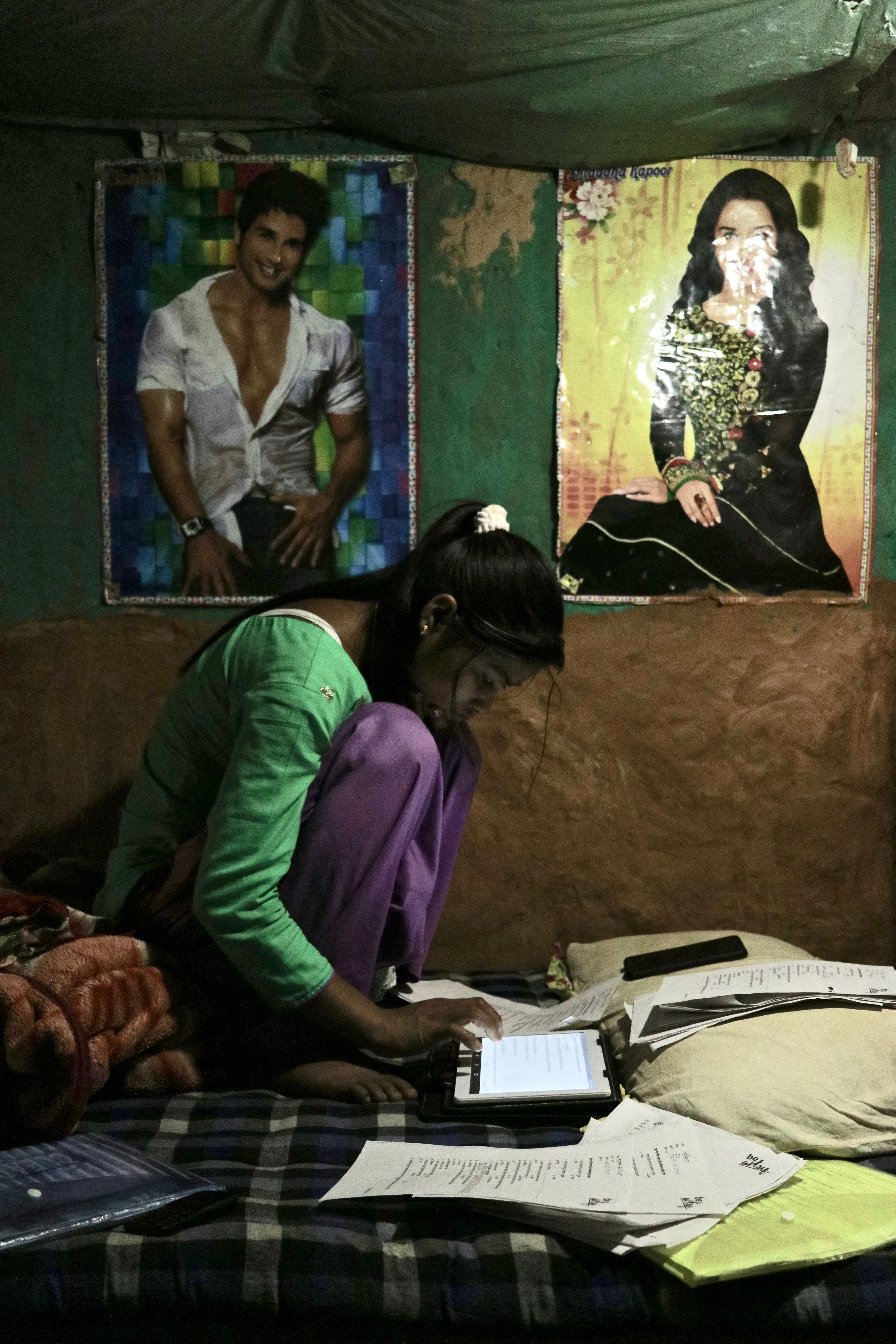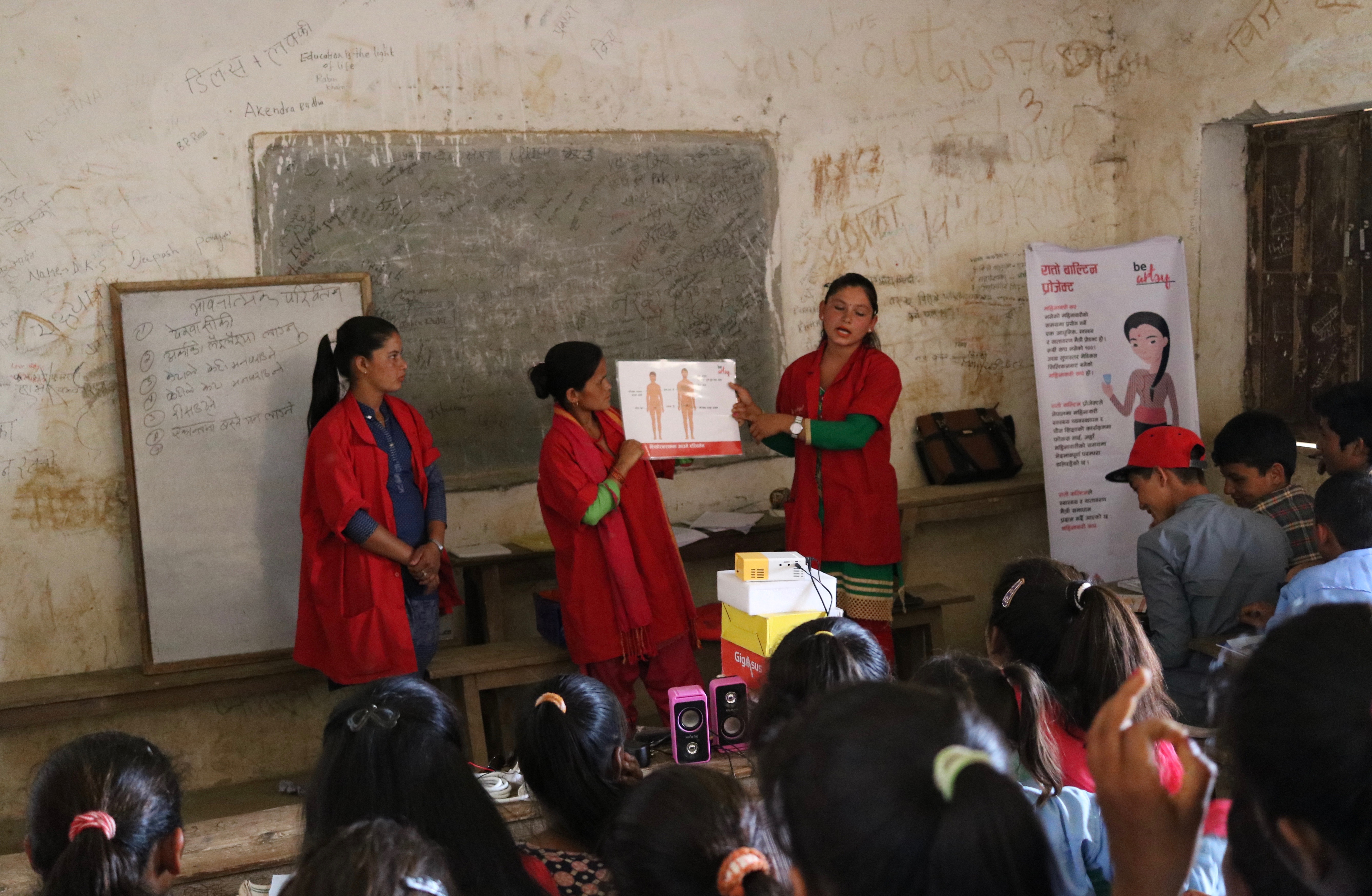It has been many months now since I left Nepal. My life as a volunteer for the Rato Baltin Project seems far away because a lot has happened since I left Achham, but I can still feel how being a part of this project has changed me and my life.
When I first started to write about my experience as a volunteer, I thought I would share my point of view on the contribution of technology in development projects. In fact, most of my tasks as a volunteer were to prepare forms in this new app we used to collect data from the field. This software “Kobotoolbox” kept me busy from February until I left Kathmandu in June. I was an international cooperation student and learned the importance of getting data from the field and Kobo was an amazing technology that allowed us to get all the information we needed without being connected to the internet. With that tool, we could collect and save all our data from remote areas and download them as soon as we got back in the office with internet connection. The data is essential because it gives us information about the project’s impact and with the use of technology it protects information and avoids the loss of papers. It is also a great asset to empower the population because it is a great tool to develop new skills and get access to reliable information more quickly.
Indeed, it was amazing to see the young mentors and trainers learning how to use the tablets. The responsibilities that came with their tasks helped them grow and gain confidence in what they were able to do in such a short amount of time. For me, the challenge was to explain to them how to use the device without speaking the same language. Patience and imagination became my best friends and I made sure to keep those qualities the whole time I was in the villages.

As I started writing the first draft of this testimonial, I realized I wasn’t talking about what I felt about my experience in the project. I wasn’t able to express my feelings towards it because I couldn’t step back and see what it brought into my life. I was confident the project had a positive impact on the girls and women in Achham, but I couldn’t see the impact it had on my own life.
I had to remember why I decided to go to the far west of Nepal instead of going trekking. Nepal was a destination I had been dreaming of for a long time, but I have to admit, except for the fact that it is the birth place of Buddha and that there are a lot of outdoor activities due to the mountain range, I didn’t know much about the people and the culture. So, when my friend Marisol came back from her trek in the Anapurna and told me that she had met this fantastic woman from Spain who does an incredible job for young women by fighting against the practice of Chaupadi, my only first question was, “What is Chaupadi?” I was studying international cooperation, and had analyzed all kinds of different projects on women empowerment but I had never heard of a practice so degrading and dangerous for women and girls. As I did some research and looked closer at the actions of the Rato Baltin Project, it became clear to me that I had to be part of it! I wanted to be able to use my knowledge from my two years of studies in international cooperation for a project I believed in. In addition to that, it was an opportunity for me to discover this country that I was dreaming to explore.
My semester at university was over and I was flying and driving all the way to Sanfebagar in Achham by the middle of April. When Clara told me it would take two days by bus to reach our meeting point for the training, I have to admit I wasn’t sure where I was going and I was a little bit worried. I had to find my way there by myself since I couldn’t make it on time to leave Kathmandu with the rest of the team. This was my first encounter with the Nepali culture. I had to trust that no matter how long it took, day and night driving on bumpy roads, I would get to my destination. I had to let go of the fear of the unknown and just let myself be in the moment and know that everything would be okay. I can still remember the heat, the dust, and the noise on the road, and how awkward, tired, and lost I felt on my first day of training. But finally, I was there!
Soon enough, I realized that being part of the project wasn’t only about me helping and sharing my knowledge. In Achham, I was mostly receiving and learning. Even though I couldn’t express myself with words, I was interacting with the girls. The young mentors Lalita, Sangita, Manisha, and Tulsi, who I shared a room with, were always concerned about my well-being because they knew that the conditions we were living in were unusual for me. In no time, I was part of their world and somehow they showed me what it was like to be a young woman in Achham.
I was impressed by their investment in their tasks and as I was observing them prepare for class every morning, I couldn’t help but imagine what things would be like for them if they didn’t have the opportunity to be teaching the sexual education class for the Rato Baltin Project. They probably would have been in the field or helping with household tasks, but instead of that, they were proudly making changes in their community.
In each of the three villages we visited, the lifestyle was different, but the lack of access to clean water was always the main issue. I had to get used to taking a shower from the main tap in my undergarments and being curiously observed by anyone who would come to fill up their cans.
In Hichma, the first village, I felt at home right away. We received a warm welcome and a lot of support by the members of the community. At school, students were very open and interested in the class the girls were giving, and when our work was done, my regular evening walks allowed me to take photos of the women and the landscapes. I was taking pictures of moments that I will never forget. I thought I could understand what it feels like to be a woman from Achham by observing them and living with them, but the truth is that I could never relate to the practice of Chhaupadi. I will never be in a position where I am forced to sleep in a shed and am considered impure every month. No matter how much I study the problems associated with the practice, I will never know the fear of being alone, the feeling of injustice and rejection, the feeling of not being able to pray at the temple, or the feeling of being asked to eat separately from the rest of the family. Even if I spend time travelling and even if I stay long enough to immerse myself in the culture and traditions, I will never know what it feels like to grow up and live in an underdeveloped country. Although I never felt like I was privileged back in my own country, in the villages in Nepal I could sense how lucky I was to grow up in environment where I can be free to be the woman I have chosen to be. I am lucky because I was born in a part of the world where I can be free to do anything with my life and love whomever I want. Whether I am rich or poor, I still have the right to decide what to do with my life.

It then became even more obvious that I should use these privileges to help those who need change in their conditions and lives. As a foreigner, it wasn’t my role to force or impose new habits or try to change their traditions. I could only set an example of how free a woman can be when she has the tools to make her period more comfortable and experience it as a natural process. For that, the menstrual cup is the best solution, and any woman can benefit from it. As a privileged individual, it is my responsibility to act and help those in need. What I came to learn is that we are responsible for our own changes. The girls, mentors, and trainers took the opportunity that was given to them. They transformed their life for a while – and probably forever, and I strongly believe that our time with the Rato Baltin Project will also have an impact on young women in Achham and make changes in their lives. As far as I am concerned, I know I will be back in Nepal and my participation in the Rato Baltin Project isn’t over yet. Today I feel grateful for the opportunity to be part of this adventure and every month when it is time to use my menstrual cup, I cannot help but remember what it was like to be woman in Achham.

Written and photos by Anne-Laure Crepin, correction by Shae Marineau.
West Nepal girls need this kind of program. And we need help to continue the project!
Paypal recurring donations:
Or if you feel like it, you can donate via bank transfer at: Banc Sabadell IBAN: ES23 0081 0900 8200 0430 1934 BIC: BSABESBB (your recurring donation will help us have a better planning of our budget to carry out the projects undertaken).
Or take a look to others ways to donate at http://beartsy.org/get-involved-with-rato-baltin/ or https://beartsy.org/become-an-associate/
Thank You! 🙂
